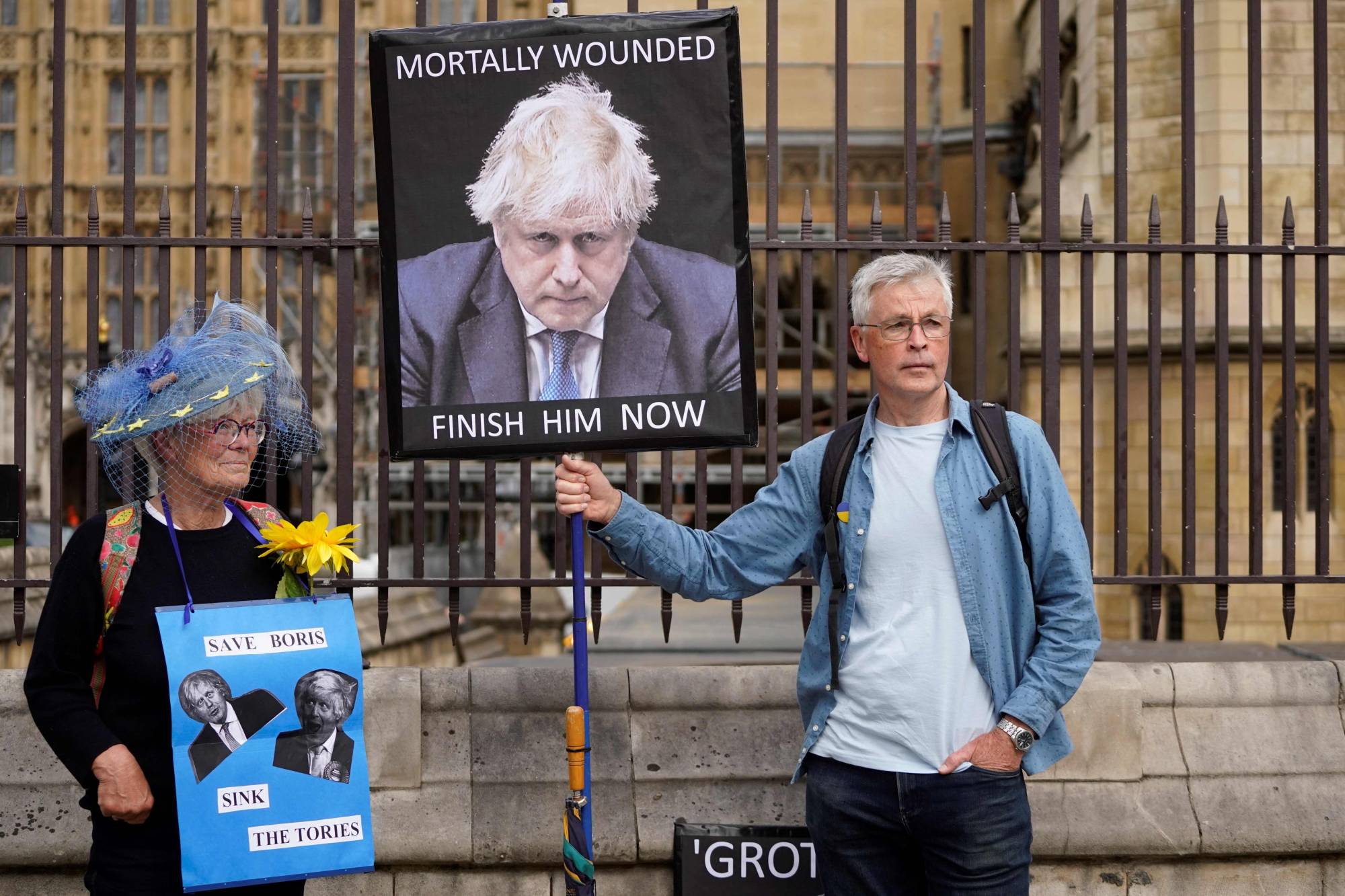For a man who for so long set his sights on being Britain's prime minister, Boris Johnson came dangerously close on Monday to being ousted by lawmakers tired of defending him and faces a battle to win back the confidence of his party and country.
He survives, just, for now. But he is deeply wounded and even loyal lawmakers who backed him in the confidence vote say he must now change — return to the traditional ideals of the governing Conservative Party, foster unity and lead.
His inbox is daunting. British households face the biggest cost-of-living squeeze since the 1950s, with food and fuel prices rising while wages lag, and travelers are experiencing transport chaos at airports caused by staffing shortages.


















With your current subscription plan you can comment on stories. However, before writing your first comment, please create a display name in the Profile section of your subscriber account page.